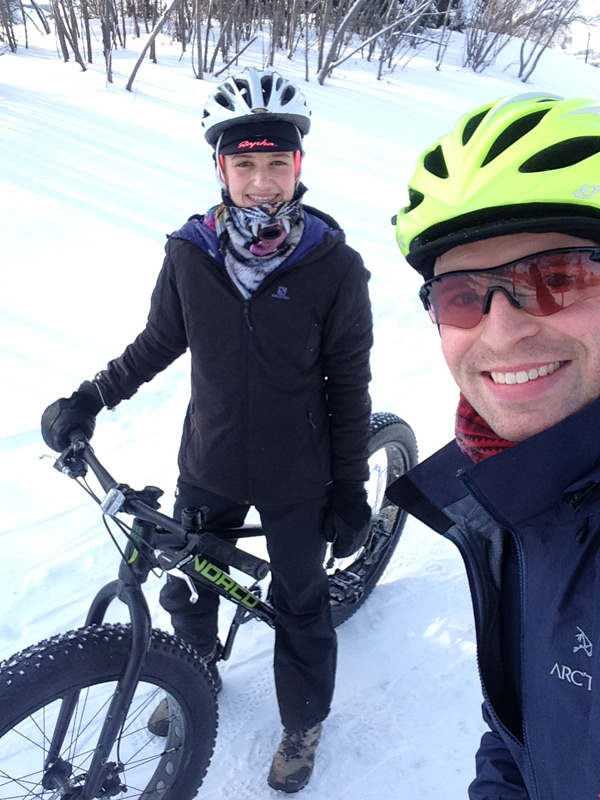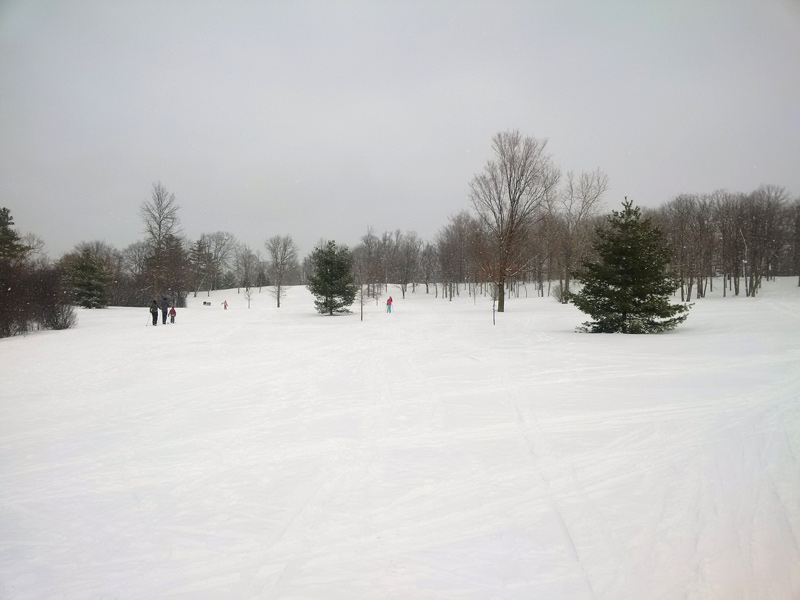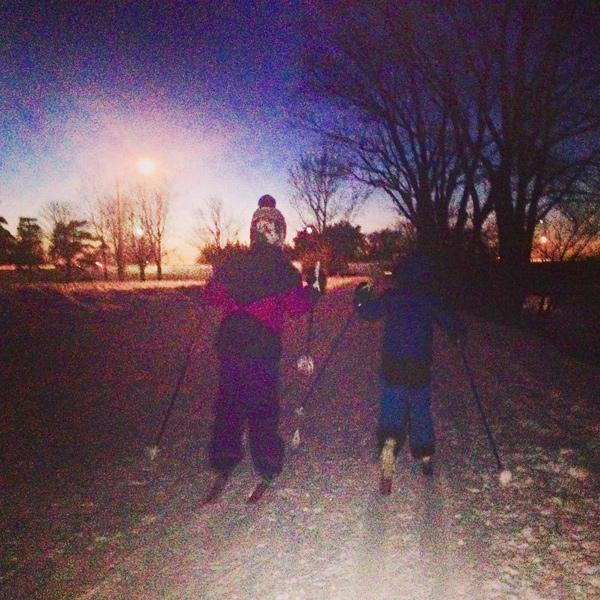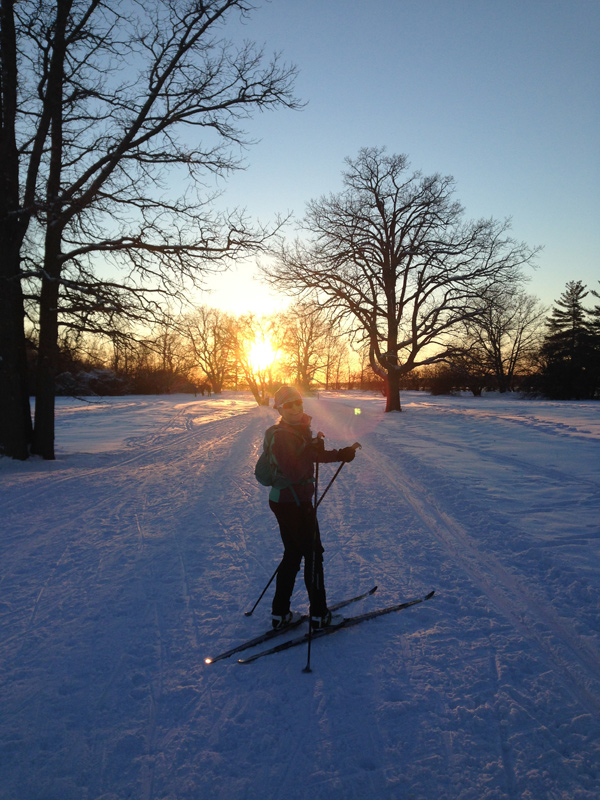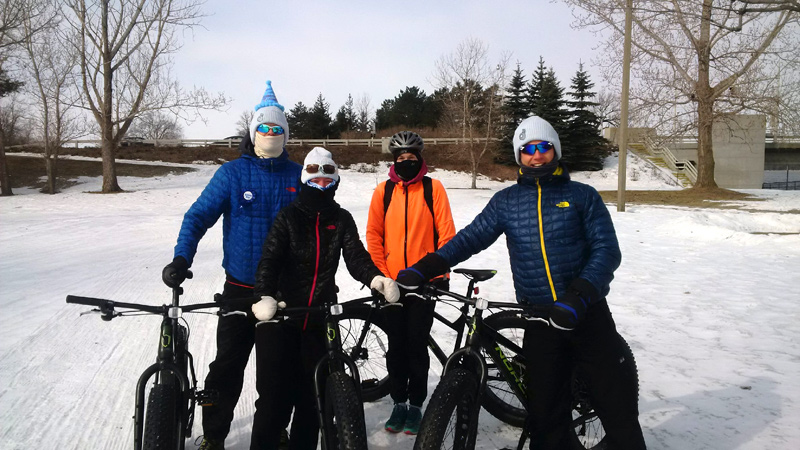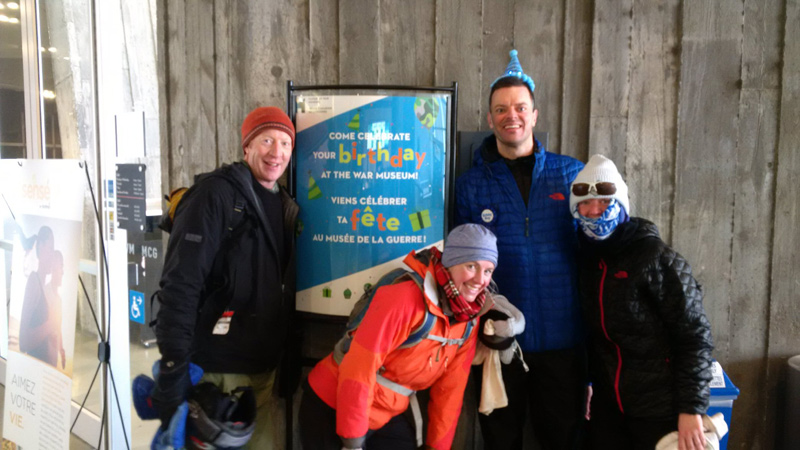By Shaun Markey –
Harry S. Truman once said, “It’s amazing what you can accomplish if you don’t care who gets the credit.” Those words describe perfectly the effort of Westboro area resident, Dave Adams when he approached the National Capital Commission (NCC) with the concept of a 5 km multi-purpose winter recreational trail that would follow a portion of the Sir John A. MacDonald Parkway along the Ottawa River.
With the support of several key organizations including the Dovercourt Recreation Centre, the community associations of Westboro Beach and Champlain Park, numerous cross-country ski associations from the national to the local level, the Sir John A. MacDonald Winter Trail, also known by the acronym SJAM, was created this season.
Dave and a team of volunteers maintain the multi-purpose trail throughout the winter. Cross-country skiers, snowshoe enthusiasts, and snow bikers are all welcome on the trail. While the basic trail is 5 km in length, add all the detours, nooks and crannies, and a round trip outing on the trail could be well over 20 km!
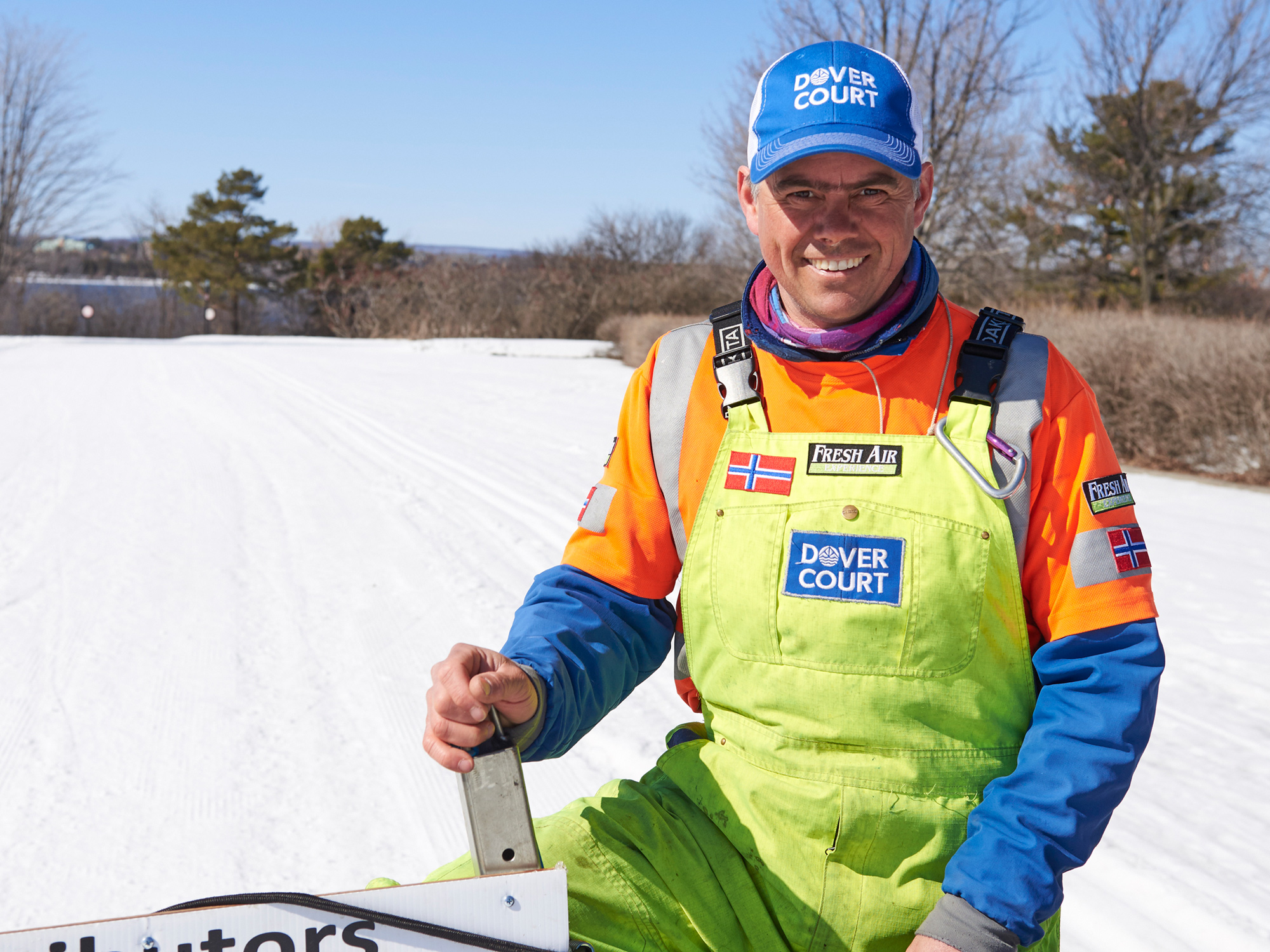
Dave gives full credit to two “core groomers” who keep the trail in shape, Michael Lee, and Dave Haney. Peter Edmison is also a key individual in maintaining the trail.
Dave also noted that there is a huge team of people behind the scenes that make the project possible. “And then, of course, there is the Dovercourt Recreation Association, providing all the administrative support. Without their help the project would not be possible,” Dave adds.
Dave is convinced that the concept for SJAM worked well because it was structured as a partnership project. “One reason why the SJAM was successful was that I went to them (the NCC) offering a fully managed program and here we are today.”
He is also sure that there is more potential for partnership projects between community groups, the NCC and other government organizations.
After opening this year on December 12, news traveled fast, and it wasn’t long before upwards of 500 people a day could be seen on the trail.According to Dave, the NCC has been impressed with the project. He took NCC staffer, Luc Beausoleil, out on the trail this winter for a close-up view. The conditions were perfect, with lots of people out enjoying SJAM right after a substantial snowfall. It was a 3.5 hour tour by Skidoo.
“I showed Luc everything,” says Dave. “Of course, I had my favourite spots like Kitchissippi Forest, Remic Park, Champlain Woods, Selby Plains and Bayview Heights that I emphasized as important areas for the future of the trail.”
Dave also pointed out problem areas, like the area where all the pathways converge and squeeze down by the river’s edge just east of Westboro Beach as well as the struggles the team had with the underpasses and the Parkdale access point.
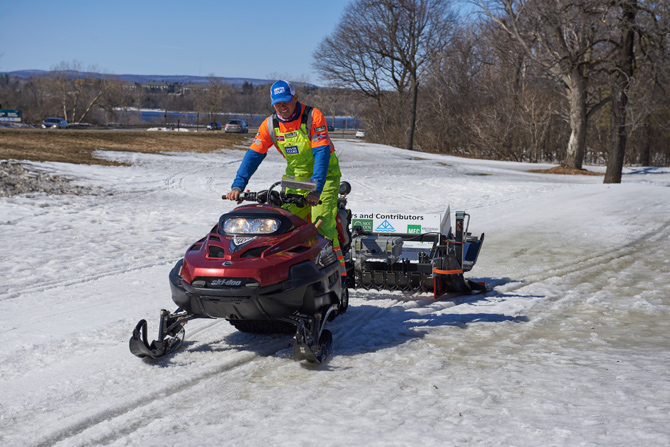
Dave is also quick to sing the praises of the NCC. “The NCC has been a great partner,” he says. “Over the season they have trusted me and let me just run with it… Of course, they were there when I needed them. For example, when they allowed my team to take down a railing just east of Kitchissippi parking lot so we could move the trail away from the road and the evil snowplow.
And then when they helped put up the safety fencing at Champlain Bridge. But other than that they have been hands off.”
Looking ahead to next year, Dave is certain that he and his team will be able to sustain the current winter trail, but at current budget levels, expansion is not in the cards. Even the initial year of the project was funded by what Dave describes as “pass around the hat.” That included crowdfunding of $25,000 and contributions from private individuals and companies: Fresh Air Experience and Bushtukah. Kitchissippi Ward Councillor Jeff Leiper also made a financial contribution to the project.
Did you use the trails this year? Visit wintertrail.ca to make your contribution by the end of the month. It is tax deductible! Contacting the NCC with a positive comment about the project is also helpful. Email info@ncc-ccn.ca, ideally before the end of March or in early April.
We asked our Facebook and Twitter followers to submit their photos of the SJAM Winter Trail. Here are a few of our favourites!
![Dave Adams of SJAM Winter Trail|WEB_Groomer-Dave-01|WEB_IMG_20170129_142152|WEB_JasmineIMG_0198|WEB_Darcy_G|WEB_Tara-Ouchterlony|WEB_image4|WEB_image6|WEB_image9|WEB_image1|WEB_image2|WEB_image3|WEB_FullSizeRender[1]|WEB_FullSizeRender[3]|WEB_FullSizeRender[5] |Groomer Dave in action! Photo by Ellen Bond|||||||||||||](https://kitchissippi.com/wp-content/uploads/2024/08/web_feature-davesjam-1-696x522.jpg)
